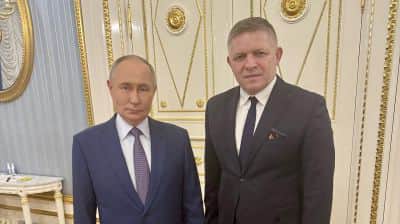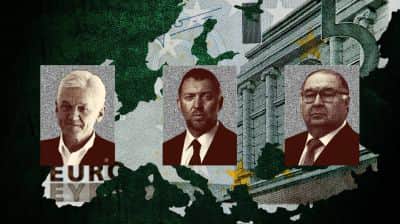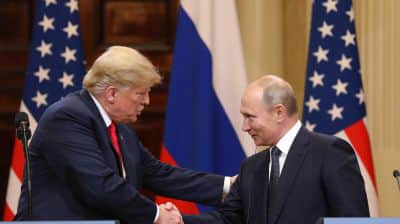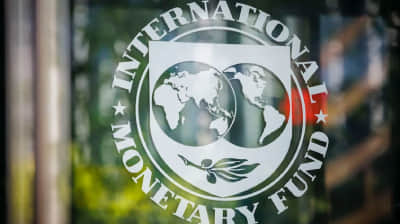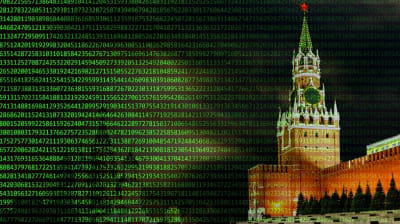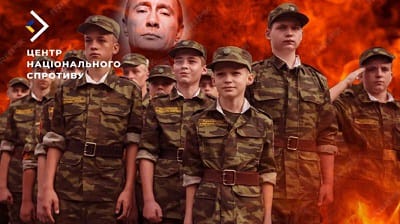"Russia seeks peace": how propaganda prepared Russians for invasion of Ukraine
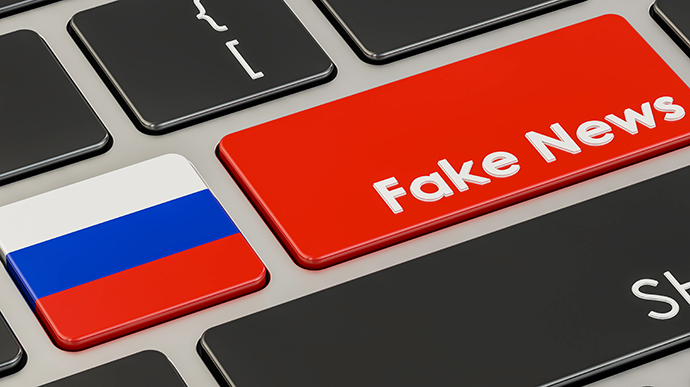
Atlantic Council analysts have released a report on Russian propaganda from 2014 to February 2022, the basic statements of which shaped public opinion about Russia's invasion of Ukraine.
Source: Latvia-based Russian media outlet Meduza; Atlantic Council
Quote: "The wording of the Rome Statute says the crime of aggression means planning and preparation for an act of aggression against a sovereign state. In this context, according to Atlantic Council analysts, the propaganda and disinformation that Russia began spreading long before the beginning of a full-scale war with Ukraine may be the evidence that the Russian authorities were preparing for an invasion."
Details: In particular, from 2014 to 2021, analysts studied 9,000 publications by the StopFake and EUvsDisinfo projects. Based on this data, a list of propaganda statements about Ukraine spread by Russian media was compiled.
Among them are the following: "the Ukrainian army and volunteer groups are brutal"; "Ukraine has become a failed state after following Europe"; "Ukrainians are Nazis"; "reforms in Ukraine are directed against Russians"; "Russia is not an aggressor"; "Ukraine supports terrorism".
The thesis that "Ukrainians are Nazis" and the brutality of the Ukrainian army have been promoted since 2014, while the statement that "Ukraine has turned into a failed state" appeared in 2016. At the same time, Russian propaganda began to spread the claim that "Ukraine is preparing for war."
The analysts also studied more than 10,000 publications by Russian pro-government media from 16 December 2021 to the beginning of the invasion. In them, the analysts identified several key statements of Russian propaganda.
"Russia wants peace" is the most common statement. Firstly, it appeared in the context of Russia's demands for security guarantees.
At the same time, propaganda promoted the following theses: "Russia is ready to negotiate with the West"; "for Russia, security issues are not only about Ukraine"; "other countries support Russia's dialogue with NATO"; "the Russian army will establish peace"; "Russia is not going to attack Ukraine"; "Russia is not a party to Ukraine's internal conflict with Donbas"; "recognition of the Donbas republics will bring peace".
"Russia has a moral obligation to protect the region" is the second most common statement in Russian propaganda.
The following theses were promoted here: "Russia is helping refugees from Donbas"; "Russia will respond with force if it does not get any security guarantees"; "Donbas republics should be recognised as independent"; "Putin is a strong leader who will find a solution"; "Russia has no choice but to use force".
"Ukraine is the aggressor" is the third most common statement made by Russian pro-government media just before the war started.
Here's how the propaganda specified it: "Ukraine is planning to attack Donbas"; "Ukraine is constantly attacking Donbas"; "Ukraine does not comply with the Minsk agreements"; "Ukraine is organising provocations in Donbas"; "Ukraine is committing acts of genocide in Donbas".
"The West is creating tension in the region": this statement was most often found in publications about Russia's demands for security guarantees.
The main theses from these publications are: "NATO expansion should be stopped"; "the West does not take into account Russia's security concerns"; "NATO wants to increase its presence near Russia's borders"; "the West did not comply with previous agreements with Russia"; "the West ignores the situation in Donbas".
"Ukraine is a puppet of the West": this statement was relatively rarely used in Russian propaganda just before the war. It was mostly used in the context of Russia's demands for security guarantees.
The main theses are: "The United States controls Europe and Ukraine"; "Ukraine is at the centre of the confrontation between the United States and Russia"; "The United States is using Ukraine"; "The West has taken Ukraine hostage".
The report points out the need to document all cases of Russian propaganda so that after the war is over, this data can be used to substantiate the accusations against those who started the war with Ukraine.
Journalists fight on their own frontline. Support Ukrainska Pravda or become our patron!
